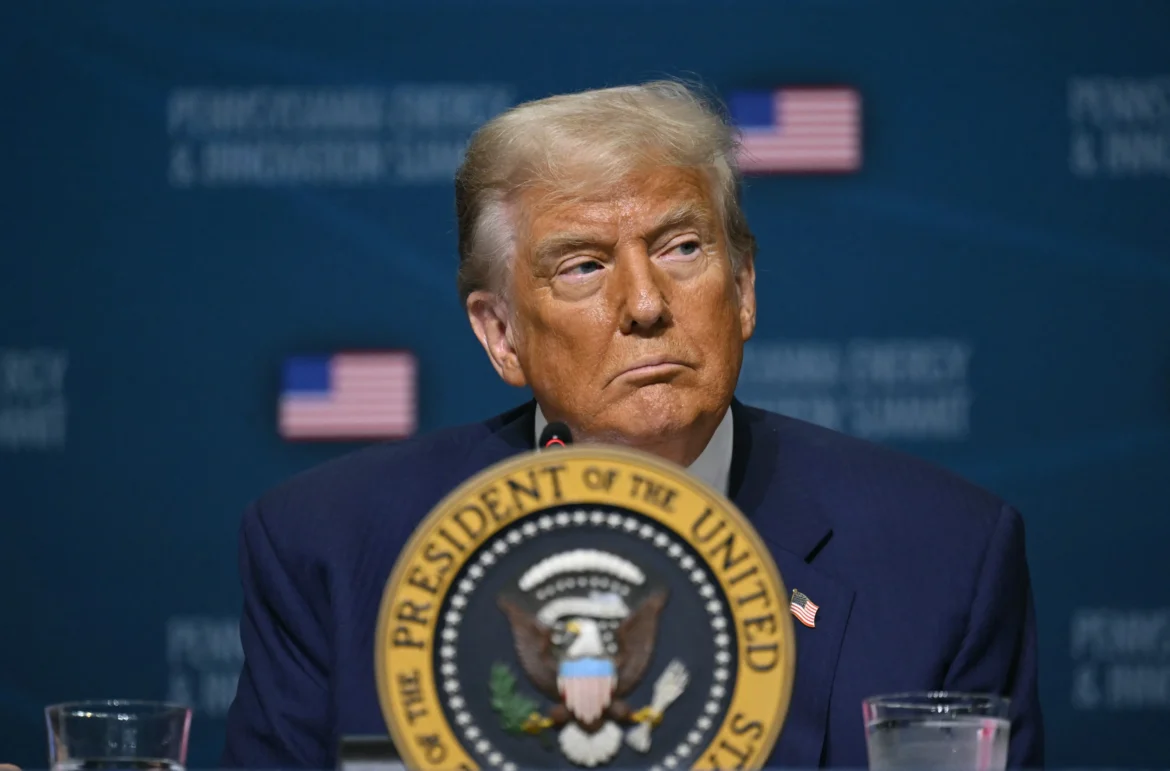Former President Donald Trump’s new tariff offensive promises to reshape not only international trade flows, but also the menus and budgets of American families.
Coffee, meat, and orange juice
Scheduled to take effect August 1, 2025, a 50% surcharge on Brazilian products threatens to make traditional breakfasts in the United States more expensive—and even less tasty. Coffee, meat, and orange juice are among the main items affected, and the impact is expected to be felt almost immediately.
More expensive and lower-quality coffee

Dependence on Brazilian coffee
In 2024, the US imported approximately 1.6 million tons of coffee, with Brazil accounting for almost a third of this volume. Trump’s imposition of the new tariff increases the import cost of Brazilian coffee by 50%, which will inevitably be passed on to the end consumer.
According to Rabobank analyst Guilherme Morya, such a sudden shift could alter the global market:
“We will see a restructuring of the flow of coffee around the world, especially from Brazil to other regions.”
Race against time at ports
Commodity traders are speeding up shipments to the US, redirecting ships, and bringing forward deliveries. The attempt is to prevent cargo from arriving after the August 1st deadline.
Jeff Bernstein, director of RGC Coffee, states that some cargo has already had its destinations changed:
“We’ve redirected some cargo to land in the US earlier. But for others, we haven’t been able to speed up.”
Changing tastes
With the possible reduction in Brazilian imports, dependence on other suppliers grows, such as Vietnam, which primarily produces robusta beans—more bitter and of lower quality.
Starbucks, for example, may have some protection due to long-term contracts. Smaller coffee shops and direct consumers will feel the impact more quickly, both in their wallets and in their taste.
Orange Juice and Tropical Fruits at Risk

Brazil Dominates the Market
About 90% of fresh orange juice and 55% of frozen orange juice consumed in the US comes from Brazil. Domestic production, concentrated in Florida, faces challenges such as citrus diseases and extreme weather events.
According to David Gantz of Rice University’s Baker Institute:
“Florida can’t make up for the shortage. The impact on orange juice consumers will be enormous.”
Outrage in the Brazilian Industry
The Brazilian Association of Fruit Producers and Exporters (Abrafrutas) expressed its condemnation of the measure:
“Initially, they thought the impact would be on Brazil. Now they’re realizing they’re going to get screwed too.”
Brazilian Beef: Villain or Savior?
Decline in American Production
After years of drought, the US is experiencing the lowest cattle supply in over seven decades. Meat production is expected to decline by 2% in 2025.
In this scenario, Brazilian meat has become a key player. In the first five months of the year, imports doubled, representing 21% of total imports.
More expensive burgers and barbecues
Brazilian meat, generally leaner, is mixed with domestic production to supply fast-food chains. With Trump’s new tariff, the production cost of burgers will increase, raising the prices of combos and the traditional weekend barbecue.
Already visible effects on inflation
Rising consumer prices
Even before the 50% tariff took effect, signs of inflationary pressure were already visible. In June, the consumer price index (CPI) rose 2.7% in 12 months—the highest increase since February.
Furniture: +1% (previously 0.3%);
Home appliances: +1.9% (previously 0.8%);
Apparel: +0.4% (previously a decline).
Worsening trend
Economists predict that the increases will be even stronger in the coming months, especially if other tariffs announced by Trump on European and Asian countries are implemented simultaneously.
Market reactions and impacts on Brazil
Negotiation attempts
Brazilian exporters hope there will be room for last-minute diplomatic negotiations that could avoid the full impact of the tariff.
Otherwise, Brazil could redirect some of its production to other markets, such as China, Europe, and the Middle East, although the redirection won’t happen overnight.
Impact on Brazilian agribusiness
According to Daycoval Bank, even with a 50% tariff, the drop in exports would be only 15%, due to the US’s difficulty in finding immediate substitutes.
Can the US produce coffee or juice domestically? Coffee: Limited and Expensive Production
The US produces coffee only in Hawaii and Puerto Rico, totaling 11,400 tons in 2024—less than 1% of national demand. The cost of domestic production is two to three times higher than that of imported beans.
Orange Juice: Crisis in Florida
Orange production in Florida, already facing a sharp decline, may not be able to meet local demand without Brazilian imports. The situation is likely to worsen with increasingly frequent extreme weather events.
See also




